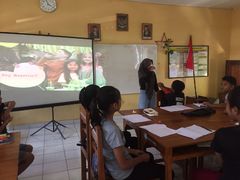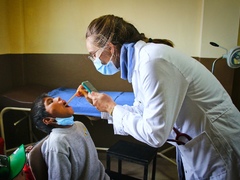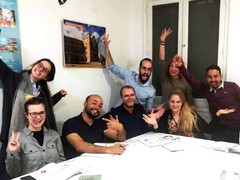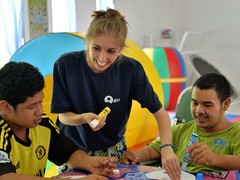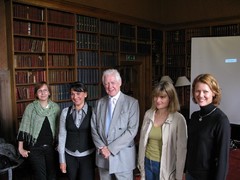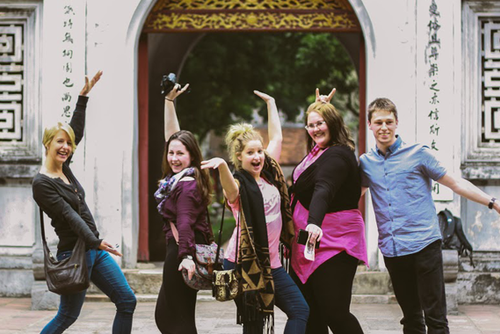The program is designed to “increase mutual understanding between the people of the United States of America and the people of other nations” through educational and cultural exchange, that is, an exchange of people, knowledge and skills.
With this purpose as a starting point, the Fulbright Program has provided more than 230,000 participants, chosen for their leadership potential in their fields, the opportunity to observe the particular political, economic and cultural institutions of each participant, as well as exchange ideas and embark on joint projects of great importance for the general well-being of the world's inhabitants.
The Fulbright Program is sponsored by the Bureau of Educational and Cultural Affairs of the United States Department of State under the policies established by the J. William Fulbright Foreign Scholarship Board. The Board of Directors is a group of 12 public and educational leaders, elected by the president, who formulates the policies, procedures and selection criteria that govern the Fulbright Program. Currently, the Program operates in 140 countries, including 51 nations with bi-national Fulbright Commissions and Foundations. A variety of cooperating private organizations also assist in the administration of the Program.
Approximately 234,000 Fulbrighters, 88,000 from the United States and 146,000 from other countries have participated in the program since its creation more than fifty years ago. The Fulbright Program awards approximately 4,500 new scholarships annually. Within the group of Fulbright fellows there are Nobel and Pulitzer Prize winners, governors and senators, ambassadors and artists, prime ministers and heads of state, professors and scientists, judges of the supreme court and presidents of companies.
The Fulbright Commission of Ecuador was established in 1956 by executive decree between the governments of the United States and Ecuador to facilitate the administration of the educational program. The Binational Commission has a board comprised of eight members, four Americans and four Ecuadorians, who assume responsibility for overseeing the long-term objectives of the Fulbright Program. Approximately 1,900 Ecuadorian citizens and 845 US citizens have been selected as Fulbrighters since 1956 through the program in Ecuador.
Additionally, the Fulbright Commission offers Academic Counseling and maintains two small, but complete, libraries in Quito and Guayaquil where students can search for the academic programs that best fit their needs. In addition, those interested can receive information or advice on the necessary documentation for admissions at American universities and the relevant standardized exams.
Finally, the Commission has an English Teaching Program for adults. The complete program comprises eight levels with eighty class hours per level. The courses are offered every quarter in Quito only.
English Teaching Program
The English Teaching Program is part of the Fulbright Commission of Ecuador, which exists through a non-profit bi-national agreement between the governments of the United States and Ecuador to direct the Fulbright program in Ecuador and other cultural and educational activities that contribute to the promotion of mutual understanding between the citizens of the United States and Ecuador.
The English Teaching Program (ETP) is designed to help adults with a medium level of English proficiency to develop their level of oral, reading and writing skills, reaching levels close to those of a native language, a Once the program is completed.
This level of proficiency will allow students to pass admission exams required by universities in the United States. Those without interest in continuing their studies in the United States, will be able to reach their professional goals with the appropriate level of English, so necessary in today's world.
To enter the ETP, all students must take a Location Test.
Students
Currently, the students of the ETP, who are governed by the code of honor of the Fulbright Commission, are young professionals, students and university professors, over 18 years of age, Ecuadorians or other South American countries, from varied fields such as computing, geography, biology, agriculture, marketing and political science. Approximately 30 percent of ETP graduate students have applied to graduate programs in the United States and other English-speaking countries.




